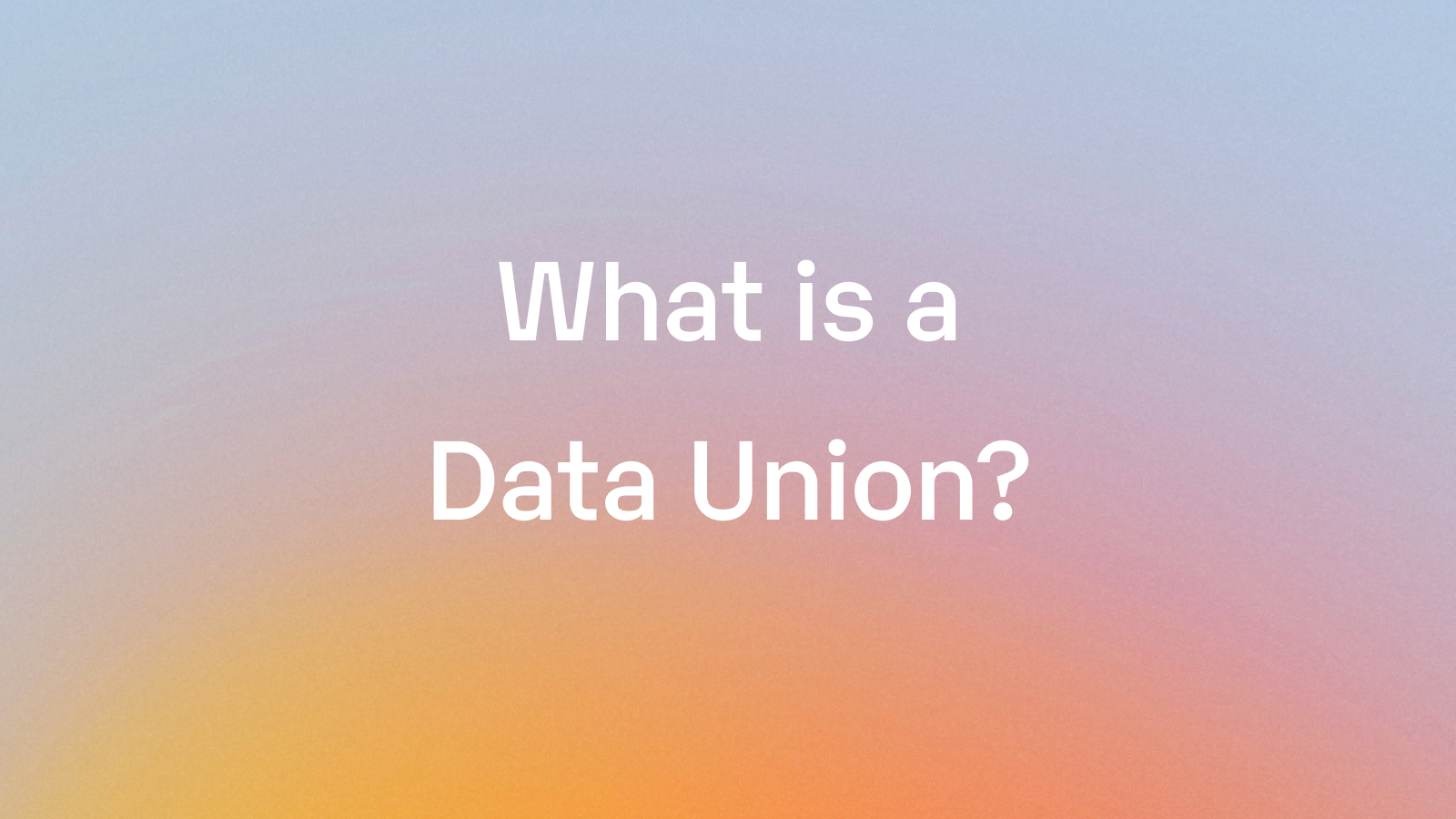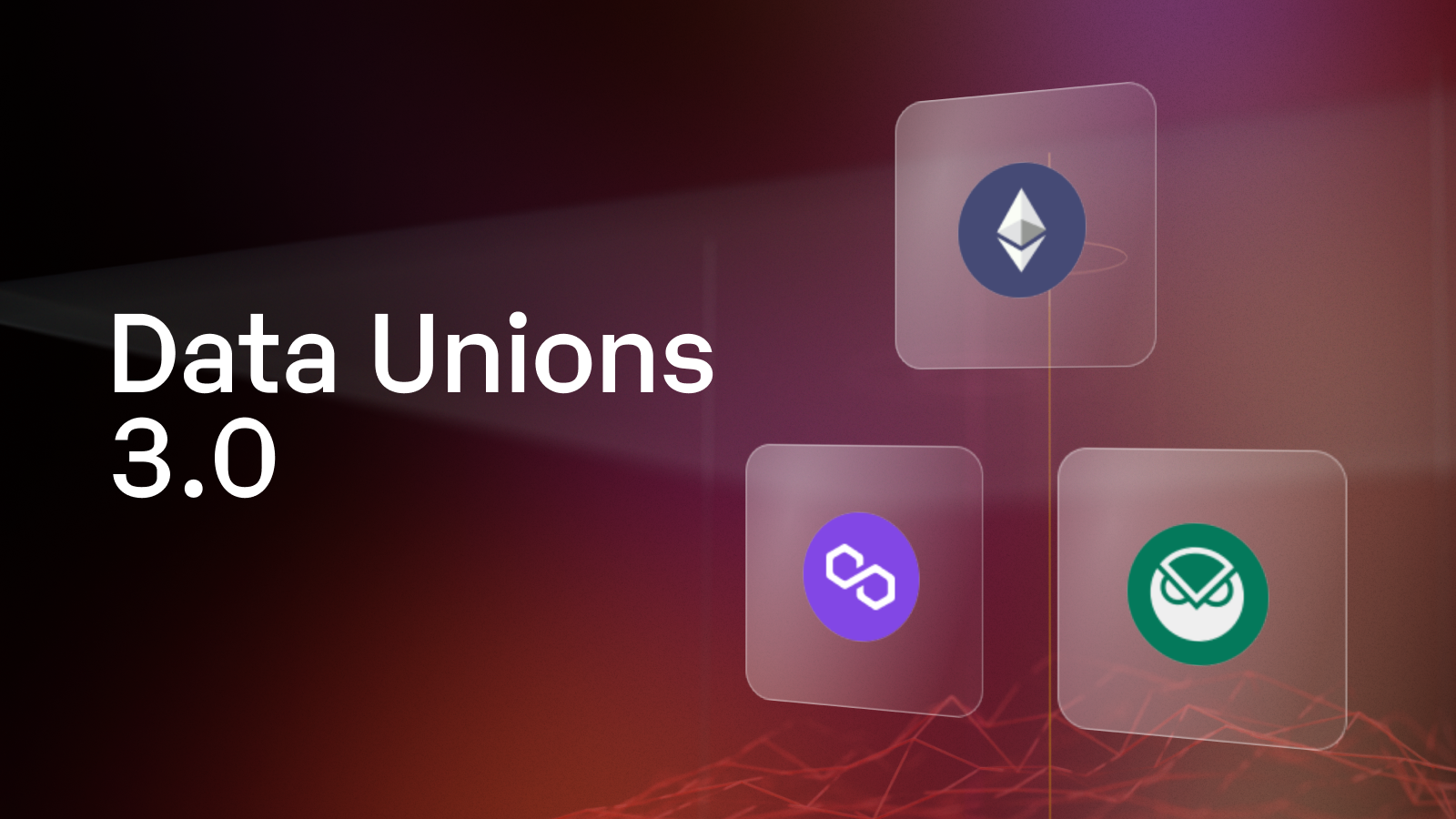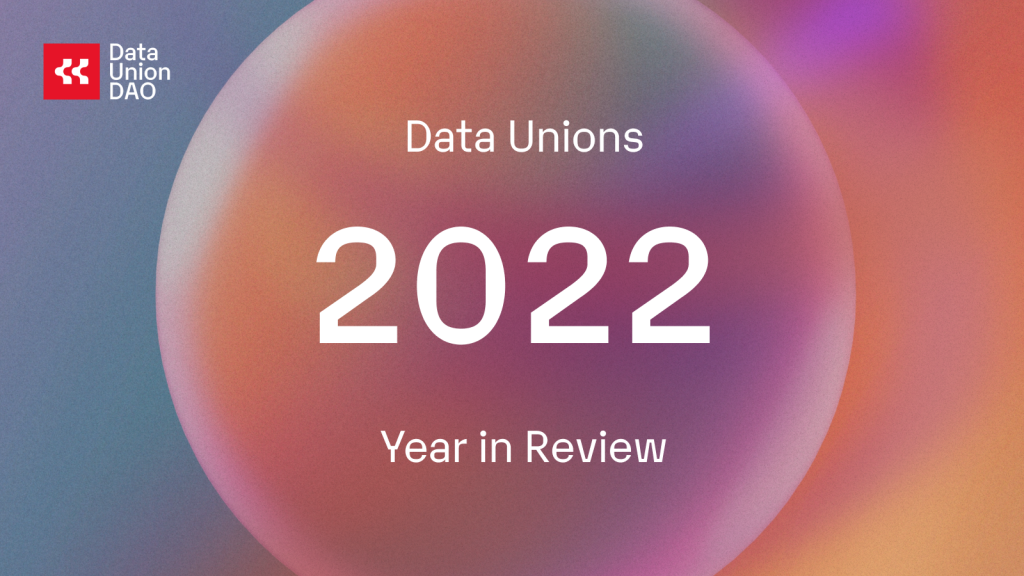
We shipped code, joined events, held talks, sponsored hackathons and helped our little ecosystem develop and flourish. Here are some of our favorite milestones and news that we have enjoyed creating and reading about.
Smart Contract Updates and Upgrades
Streamr devs upgraded the Data Unions smart contracts to version 3 making the code EVM compatible and launching the smart contracts on Polygon. With that, we are looking into expanding the smart contracts to new L1 and L2 developer communities.
Most recently, we released a new much requested feature: weighted revenue distribution. Devs can now assign weights to Data Union members to distribute weighted token rewards – more on that in our docs.
Data Unions smart contract activity
The Swash Data Union smart contract crossed 500,000 transactions on Gnosis chain and Swash onboarded over 320,000 members from around the world.
“Streamr’s Data Union technology inspired the creation of the Swash app back in 2019. Now, Swash is thriving, with a community that are passionate about owning their data and the impact they can have on the future of the internet. The solution made possible with Streamr and their Data Union smart contracts, plus the support they’ve shown since day one, has been invaluable to the success of Swash and the evolution of the broader Web3 data economy.”
Chloë Diamond, CMO at Swash
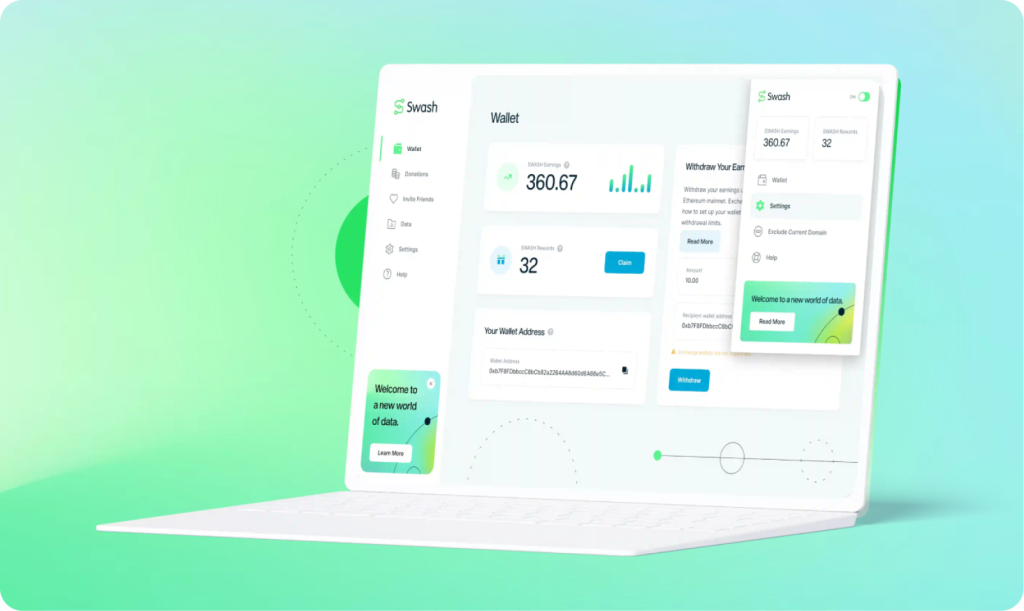
Swash also partnered with DataHive DAO, two parties in the Streamr & Data Union DAO ecosystem, to ship sIntelligence – delivering market insights by utilizing Swash member data.
Another highlight in 2022 has been to work with the core team at DIMO. DIMO is one of the hottest web3 startups that has been covered by Polygon, Messari, and CoinDesk to name a few – and it all started with a grant from Streamr.
“Streamr gave us a grant and in a couple of weeks, we had sent data from one of these AutoPi devices to a Streamr Data Union. At that point in time we realized that the tech problem is solved.” –
Alex Rawitz, co-founder at DIMO
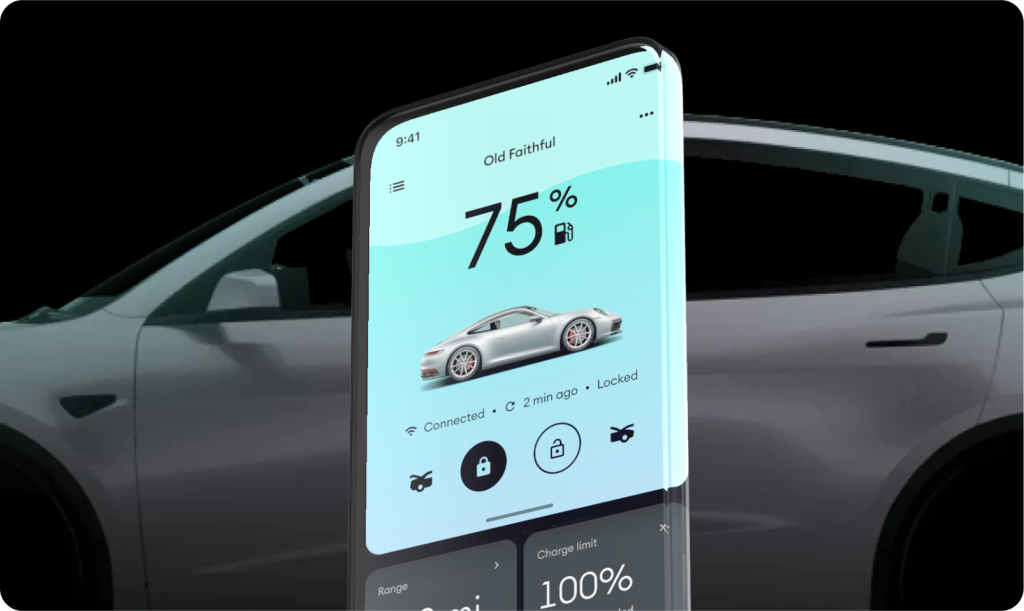
After experimenting with Streamr and Data Unions for their proof of concept DIMO raised $9m in seed funding, connected over 5,000 cars to their network, and launched their mainnet and token rewards utilizing the Data Unions smart contracts in December – distributing a total of 6.75% of the total DIMO supply to early drivers that contributed data to the DIMO Network.
Data Unions and similar trends
DUs, PoPW, TIPIN or DePIN? What do all of these abbreviations have in common? They aim to describe the trend of utilizing token incentives for growing physical infrastructure networks.
While Data Unions don’t differentiate between physical and digital infrastructure networks, they all utilize token incentives for growing networks. Networks of people and devices that are connected and serve a mutual goal.
The most recent new term that aims to describe this growing ecosystem is called DePIN: Decentralized Physical Infrastructure Networks, which has been introduced by Messari Crypto around November 2022. DePIN has even made it into Messari’s Crypto Thesis for 2023 – as one of the top 10 trends to watch out for in web3. DIMO has also been mentioned in many of these reports, including the Drive-to-Earn Pro report and the DePIN sector map, both published by Messari Crypto.
DePIN is a new take on TIPIN, which stands for Token Incentivized Physical Infrastructure Networks and was introduced by Lattice Capital in July 2022, which they describe as crypto’s next big thing. They describe the TIPIN sector as projects leveraging token incentives that meets real world demand.
Prior to TIPIN, we have Multicoin Capital releasing their Proof of Physical Work (PoPW) thesis in April 2022. PoPW refers to “protocols that (…) incentivize people to do verifiable work that builds real-world infrastructure”. And again we are looking at the utilization of token incentives for people to do verifiable work, like to connect a dapp to your car or browser.
Data Unions, in contrary to all of the new terms above, was first published by Streamr Network in 2020 and has been in development as early as 2019. Whether the industry will establish itself as DUs, DePIN or co – the naming is secondary, what is important is that there is a growing trend which means there will be a growing need for infrastructure to issue out token incentives – middleware that is customizable, scalable and secure – exactly what the Data Unions smart contracts and SDK offers.
SIP-10 passed increasing allocatable tokens by 25%
We evaluated similar spin-offs like Safe and CoW that spun out from Gnosis and decided that in order to increase our longevity we needed to increase our treasury. Thanks to a Streamr community vote we were able to make this change happen.
Spreading the Data Unions love in Bogota, New York, Paris and beyond
Last year we participated in many events spreading the news about Data Unions Swash and DIMO around the world. We held a panel at ETH Denver together with two co-founders of DIMO, gave a talk in Paris during ETH CC, co-sponsored the Hackathon together with Streamr during ETHGlobal Bogota and were invited to speak at the Helium House in NYC alongside the Filecoin Foundation – to name a few.
Data Unions recognition in the web3 space
We have also had the pleasure of being mentioned by Helium core devs in the Helium blog article Streamr x Helium, and Data Unions might just be the perfect match that utilizes both technologies.
The Data Unions concept receives more industry recognition – this time by Outlier Ventures, one of the biggest web3 accelerators, who have established Data Unions as one of their investment categories.
Whether 2023 will be the year of the bear or bull – we’ll keep building and shipping code to contribute to the decentralized, permissionless and censorship resistant web.
If you are building in the DePIN, TIPIN or Data Unions space, make sure to join our discord and connect with our team. We have grants and a team to help with any technical questions about how you can implement the Data Unions smart contracts for your project.



